Becoming Catholic is one of life’s most profound and joyous experiences. Some are blessed enough to receive this great gift while they are infants, and, over time, they recognize the enormous grace that has been bestowed on them. Others enter the Catholic fold when they are older children or adults. This tract examines the joyful process by which one becomes a Catholic.
A person is brought into full communion with the Catholic Church through reception of the three sacraments of Christian initiation—baptism, confirmation, and the holy Eucharist—but the process by which one becomes a Catholic can take different forms.
A person who is baptized in the Catholic Church becomes a Catholic at that moment. One’s initiation is deepened by Confirmation and the Eucharist, but one becomes a Catholic at baptism. This is true for children who are baptized Catholic (and receive the other two sacraments later) and for adults who are Baptized, Confirmed, and receive the Eucharist at the same time.
Those who have been validly baptized outside the Church become Catholics by making a profession of the Catholic faith and being formally received into the Church. This is normally followed immediately by confirmation and the Eucharist.
Before a person is ready to be received into the Church, whether by baptism or by profession of faith, preparation is necessary. The amount and form of this preparation depends on the individual’s circumstance. The most basic division in the kind of preparation needed is between those who are unbaptized and those who have already become Christian through baptism in another church.
For children who have reached the age of reason (age seven), entrance into the Church is governed by the Rite of Christian Initiation for Children (RCIC) or Rite of Christian Initiation for Teens (RCIT).
The components of the process include instruction, discussions, a retreat and most importantly, developing and building a relationship with Christ.
Classes usually run from September through April


 When they make the decision to join the Church, they are accepted into the Order of Catechumens in a liturgical rite that marks the beginning of the formal period of initiation into the Church. During the catechumenate, the catechumen’s faith is nurtured through celebrations of prayers and blessings, and through a course of study and formation. If a person dies while a catechumen, he or she receives a full Christian burial and is considered to have been a member of Christ’s body, the Church. The Rite of Acceptance into the Order of Catechumens is for inquirers in the RCIA process who are preparing for their Baptism. They are now ready to publicly declare their intention to continue their journey toward becoming Catholics. At this Rite, they are asked to more fully embrace the Gospel message with the help of God, and are also signed with the Cross to show that they now belong to Christ, the Shepherd of souls. In this Rite, the parish community has the opportunity to more fully participate in and pray for those in the RCIA process. This Rite places these catechumens in a formal relationship with the universal Church. By Church law, the Pope and all bishops are to pray for those who have gone through this Rite. The Rite of Welcoming is for inquirers who have been previously baptized and are ready to publicly declare their intention to continue their journey toward full communion with the Catholic Church. At this Rite, they are asked if they are ready to listen to the apostles’ instruction, gather with the worshiping community in prayer, and join that community in the love and service of others. They are signed with the Cross to show that they belong to Christ.
When they make the decision to join the Church, they are accepted into the Order of Catechumens in a liturgical rite that marks the beginning of the formal period of initiation into the Church. During the catechumenate, the catechumen’s faith is nurtured through celebrations of prayers and blessings, and through a course of study and formation. If a person dies while a catechumen, he or she receives a full Christian burial and is considered to have been a member of Christ’s body, the Church. The Rite of Acceptance into the Order of Catechumens is for inquirers in the RCIA process who are preparing for their Baptism. They are now ready to publicly declare their intention to continue their journey toward becoming Catholics. At this Rite, they are asked to more fully embrace the Gospel message with the help of God, and are also signed with the Cross to show that they now belong to Christ, the Shepherd of souls. In this Rite, the parish community has the opportunity to more fully participate in and pray for those in the RCIA process. This Rite places these catechumens in a formal relationship with the universal Church. By Church law, the Pope and all bishops are to pray for those who have gone through this Rite. The Rite of Welcoming is for inquirers who have been previously baptized and are ready to publicly declare their intention to continue their journey toward full communion with the Catholic Church. At this Rite, they are asked if they are ready to listen to the apostles’ instruction, gather with the worshiping community in prayer, and join that community in the love and service of others. They are signed with the Cross to show that they belong to Christ.
